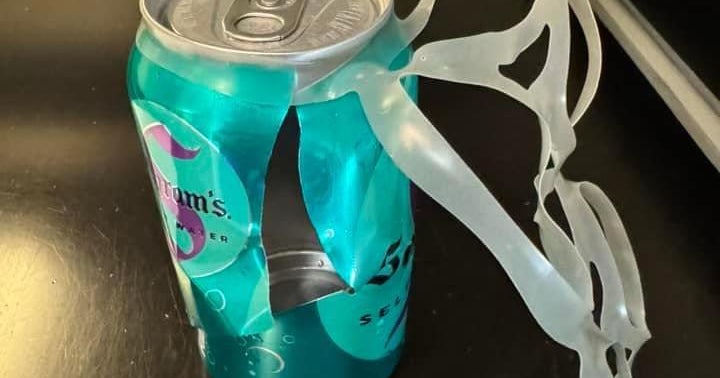
Summer Heat Causes Soda Cans to Burst on Southwest Airlines Flights: An Unprecedented Issue for the Airline
Southwest Airlines, one of the largest low-cost carriers in the United States, is facing an unprecedented issue this summer as soda cans burst mid-air due to extreme heat. The problem has resulted in injuries to at least 20 flight attendants and raised concerns about passenger safety.
According to multiple reports from reputable sources such as CBS News, The Washington Post, Yahoo News, and NPR, the issue began during the hottest months of the year when temperatures reached record-breaking levels in various cities where Southwest has a significant presence. These cities include Austin, Dallas, Houston, Phoenix, Las Vegas, and Sacramento.
The root cause of the problem is believed to be the lack of refrigeration for soda cans at airports before they are loaded onto planes. Southwest does not serve meals or perishable foods on its flights and uses non-refrigerated trucks for storing soda, making it more susceptible to heat damage.
The extreme temperatures have caused some cans to warp and others to burst upon opening, leading to injuries for flight attendants. At least one injury required stitches. The airline has taken steps to mitigate the issue by implementing measures such as digitally measuring the temperature of soda cans before loading them onto flights, instructing flight attendants not to open deformed cans, and testing air-conditioned provisioning trucks in some cities.
Southwest is also in discussions with Coca-Cola to analyze the viability of current cans and consider alternatives such as a 7.5-ounce option. The airline has halted the onboarding of cans with a temperature of 98 degrees or more and returned beverages at 98 degrees or over to the warehouse for cooling.
The soda problem comes as consumer travel demand reaches an all-time high, partly due to remote workers' newfound flexibility. The Transportation Security Administration reported a record number of passenger screenings last month, with more than 3 million passengers screened in a single day on July 7.
Southwest Airlines has not provided information about the nature of the injuries sustained by flight attendants or responded to requests for comment from various media outlets. The Southwest Airlines Pilots Association and TWU Local 556, which represents Southwest flight attendants, have also not commented on the issue.
The bursting soda cans are just one of many challenges created by climate change for travelers. Extreme weather events like floods and storms make flying planes harder and may also be to blame for bumpier flights.

